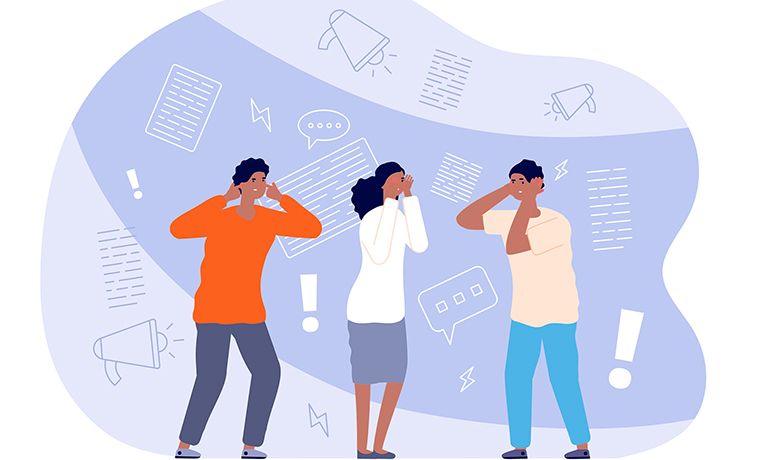Americans leery of social media bans for journalists who post content owners don’t like, survey finds

Twice as many Americans disagree than agree with owners of social media platforms, like Twitter, banning journalists who post content they don’t like.
That’s according to the latest Media and Technology Survey from Boston University’s College of Communication conducted by Ipsos, which asked Americans whether the owners of social media networks should be allowed to ban journalists who post information that the owners of the networks don’t like. Only 21% agreed with such a move, while 46% disagreed and 33% neither agreed or disagreed.
The same survey – conducted after Twitter CEO and majority owner Elon Musk kicked several journalists off the social media network Thursday night for allegedly sharing public information about the travels of his private jet – suggested that such a move would make twice as many Americans (44%) less likely to use the platform than stay (19%). Two days later, Musk reactivated the accounts for some of the banned journalists.
On the other hand, most respondents to the survey agreed with banning both journalists (56% agree vs. 16% disagree) and regular users (55% vs. 18%) for posting information that isn’t completely true.
Despite this, nearly a third of respondents neither agreed nor disagreed with banning journalists (29%) and regular users (27%) for posting information that isn’t completely true.
“It is unclear how a user or post could be banned on Twitter, so people are unaware of the internal moderation mechanisms that control content,” said Chris Su, assistant professor in emerging media at Boston University’s College of Communication. “Now Twitter users may become even more suspicious of its content moderation system due to Elon Musk’s attention-getting behavior on social media.
“Social media platforms usually use both algorithms and human reviews for content moderation, such as detecting and removing hate speech, identifying and flagging misinformation,” Su added. “The split in public opinion on banning may be due to a lack of clear policy guidance on the issue.”
Little partisan divide exists on the question of banning journalists who post not completely true information (60% of Democrats agree as do 55% of Republicans), but the gap widens when it comes to banning regular users who post not completely true information (65% Democrats agree but only 50% of Republicans do).
“Many Republicans believe their elected lawmakers have been treated unfairly by journalists, so it’s unsurprising they have little problem with banning journalists,” said Michelle Amazeen, an associate professor at Boston University’s College of Communication and director of the college’s Communication Research Center. “At the same time, Republicans also believe conservative voices are being disproportionately censored by media outlets – both mainstream and social media – which may explain why they are less enthusiastic about banning regular users.”
Americans seem united on wanting more transparency. Nearly two in three (65%) respondents wanted to know how social media networks make some posts more or less visible than others.
“While it’s well documented that researchers want transparency into social media algorithms,” said Amazeen, “we see here that this is important to the general public, as well, regardless of one’s party affiliation. However, we also know that partisan perceptions of media are leading to legislative disagreements about what types of regulations are needed to protect the public from erratic social media owners who answer to no one.”
Available for Interviews:
Chris Chao Su, Ph.D.
Assistant Professor, College of Communication, Boston University
Member, Faculty of Computing and Data Sciences, Boston University
Michelle A. Amazeen, Ph.D.
Associate Professor, College of Communication, Boston University
Director, Communication Research Center, Boston University
Faculty Affiliate, Center for Innovation in Social Science
Contact: Burt Glass, bglass@bu.edu, 617-358-0460
Survey Details:
The December survey asked respondents to indicate how much they agreed or disagreed with five statements:
The owners of social media networks should be allowed to ban journalists who post information that the owners of the networks don’t like:
Strongly agree: 8%
Agree: 13%
Neither agree or disagree: 33%
Disagree: 25%
Strongly disagree: 21%
I am less likely to use a social media network that has banned journalists who posted information that the owners of the network don’t like.
Strongly agree: 21%
Agree: 23%
Neither agree or disagree: 37%
Disagree: 12%
Strongly disagree: 7%
It is okay for owners of social media networks to ban users who post information that is not completely true.
Strongly agree: 20%
Agree: 35%
Neither agree or disagree: 27%
Disagree: 10%
Strongly disagree: 8%
It is okay for owners of social media networks to ban journalists who post information that is not completely true.
Strongly agree: 19%
Agree: 36%
Neither agree or disagree: 29%
Disagree: 9%
Strongly disagree: 7%
Social media networks should make public how their internal systems make some posts more visible and other posts less visible.
Strongly agree: 25%
Agree: 40%
Neither agree or disagree: 31%
Disagree: 3%
Strongly disagree: 1%
About the Media & Technology Survey:
The Media & Technology Survey is an ongoing project of the Communication Research Center (CRC) at Boston University’s College of Communication, in partnership with Ipsos, the market research company. This month’s poll was conducted in English on December 19, 2022, using Ipsos eNation Omnibus, a nationally representative online survey that measures attitudes and opinions of 1,000 adults across the United States. This online survey has a credibility interval (CI) of plus or minus 3.5 percentage points. The data were weighted to the U.S. population data by region, gender, age, and education. Statistical margins of error are not applicable to online polls. All sample surveys and polls may be subject to other sources of error, including, but not limited to coverage error and measurement error.


